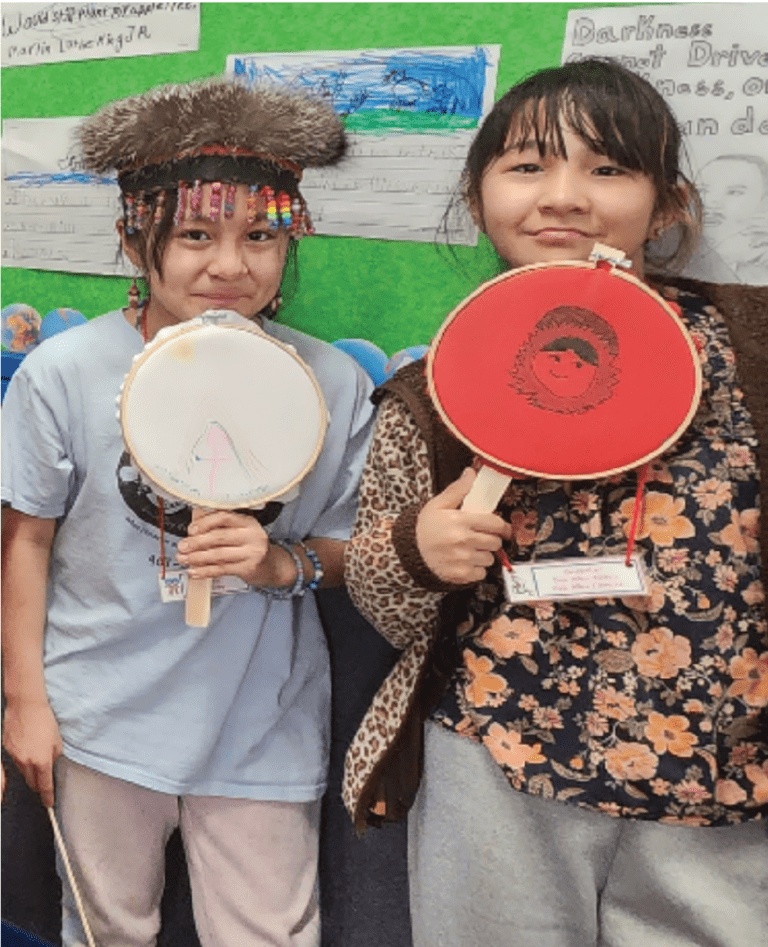Above: Clarks Point students Adrianna Wassily-Wood and Mary Wassily-Wood with mini Yup’ik drums they made to celebrate their culture and Orange Shirt Day. Photo by Deanna Baier
On September 30, Orange Shirt Day events across Alaska will once again promote healing from the legacy of Alaska Native boarding schools. The annual commemoration began in Canada in 2013 and has steadily grown in Alaska, with new resources now available for teaching.
Between the 1800s and 1970s, Alaska Native children were separated from their families to attend church and government run boarding schools, where abuse was common. Acknowledging boarding school history has gained importance as families and communities across the U.S. and Canada have recognized its intergenerational impact, which includes abuse, incarceration, and more.
In Anchorage, the Alaska Native Heritage Center now hosts the nation’s first totem pole dedicated to boarding school survivors and their families. It was carved by Haida master carvers Gidaawaan Joe Young and Sgwaayaans TJ Young. Interior Secretary Deb Haaland attended its raising ceremony last October as part of her nationwide boarding school healing tour.
Nationally, the Native American Boarding School Healing Coalition has created online resources such as an interactive map of 523 historical boarding schools nationwide. It includes profiles for 25 schools in Alaska. Oral histories are also being gathered.
In Alaska, Orange Shirt Day events often occur at schools. The Alaska Children’s Trust offers an educator’s toolkit and a schedule of statewide events at their website. Some educators use lesson plans developed by PBS and others to accompany the Grandpa’s Drum episode of the popular kids’ show Molly of Denali, which offers an age-sensitive take on the topic.
Deanna Baier, the 4-H education coordinator in Dillingham, uses Grandpa’s Drum at schools throughout the Bristol Bay area. As a Curyung tribal member whose father attended a boarding school, she knows firsthand how the practice severed ties to family, culture, and traditions. She has worked to learn how to harvest traditional foods, skin sew, and make drums, knowledge she shares with students.
Baier says that traditional skills, which are central to many Orange Shirt Day activities, help build community. Kids at her events construct Yup’ik drums to share with their families and communities.
“If we don’t pass on our culture, we’re going to lose it,” she tells Alaska magazine.


Comments are closed.